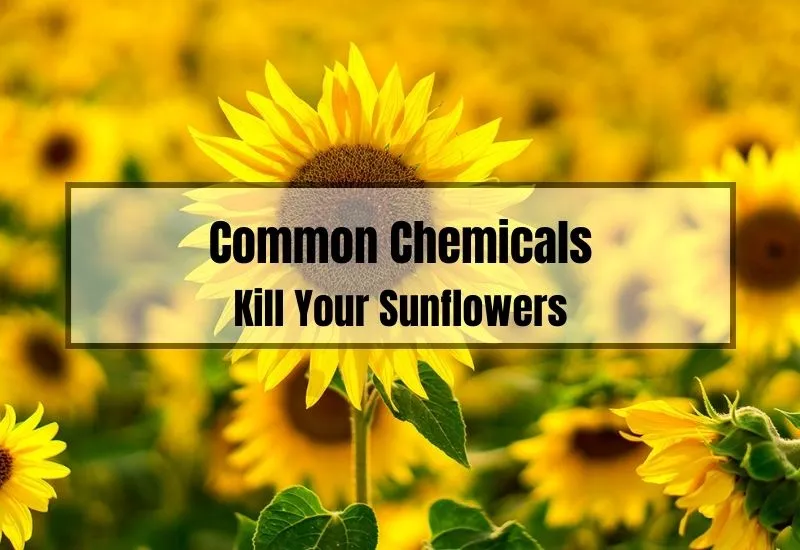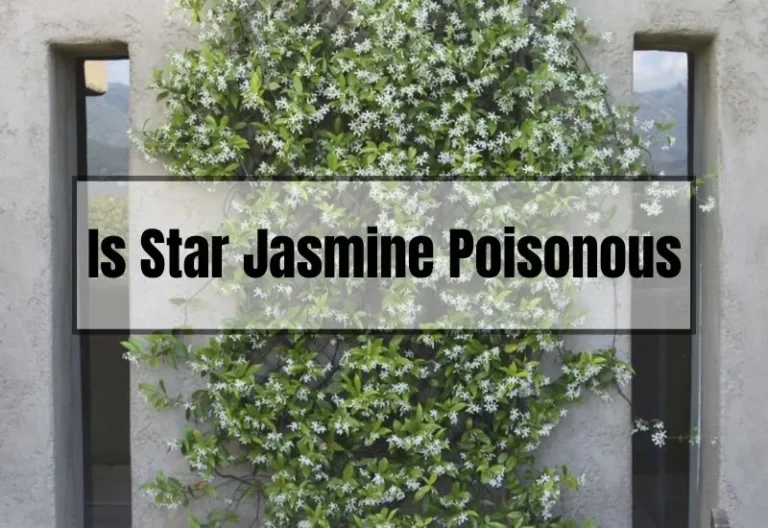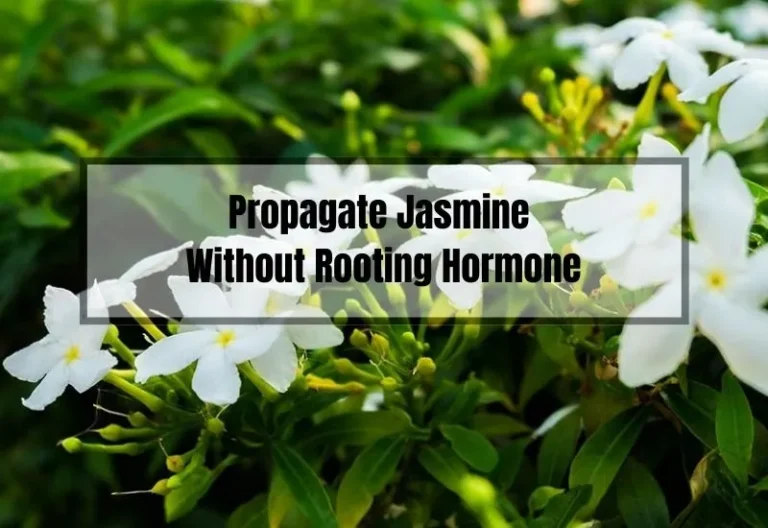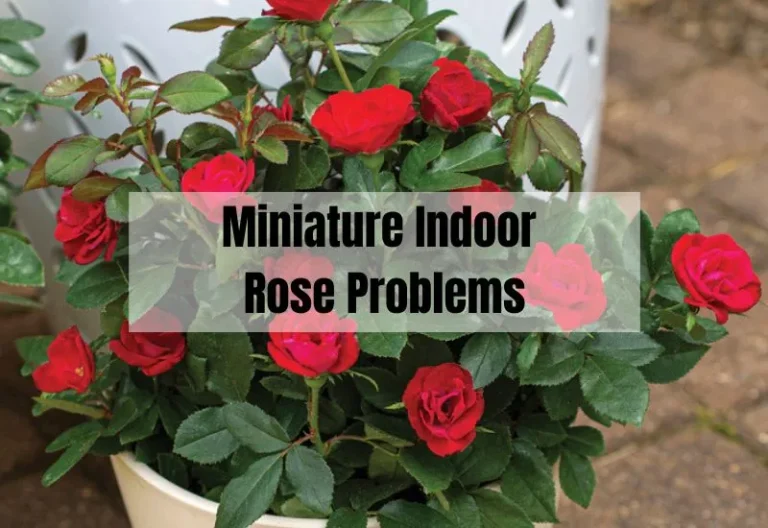Say Goodbye to Your Sunflowers: Unveiling the Common Chemicals and Natural Methods
Attention all sunflower enthusiasts! Do you find yourself struggling to keep your beautiful sunflowers healthy and vibrant? Are you tired of watching your precious blooms wither away due to harmful chemicals and pests?
Well, fear not! In this must-read article, we’ll uncover the top chemicals and natural methods that can impact your sunflowers and provide you with expert tips and strategies to protect them from harm.
From identifying common garden pests to the proper use of natural fertilizers, we’ve got everything you need to cultivate a flourishing sunflower garden with confidence and care. So, get ready to take your sunflower game to the next level with our game-changing advice!

Will These Common Chemicals and Natural Methods Kill Your Sunflowers?
The simple answer is: it depends. Some chemicals can indeed harm your sunflowers if not used correctly, while others can be beneficial when applied with proper precautions.
Similarly, certain natural methods can damage your sunflowers if misused. In this blog, we’ll dive into specific chemicals and natural methods to help you make the best decisions for your sunflower garden.
Chemicals and Their Effects on Sunflowers
Will Treflan Kill Sunflowers?
Treflan, also known as trifluralin, is a pre-emergent herbicide that works by inhibiting cell division in the root system of weeds. While it can be effective in controlling weeds, it’s essential to be cautious when using it around your sunflowers.
Potential risks and benefits of using Treflan on sunflowers:
Treflan might damage sunflower seedlings if applied in high concentrations or at the wrong time. On the flip side, when used correctly, it can help keep weeds at bay, giving your sunflowers more room to grow and thrive.
Tips for using Treflan safely and effectively on sunflowers:
To minimize potential harm, follow label instructions carefully and apply Treflan before planting your sunflower seeds. Avoid applying it directly to sunflower foliage, as this may cause damage.
Will 2,4-D Kill Sunflowers?
2,4-D is a common herbicide that can potentially harm sunflowers if not used correctly.
Tips for minimizing the risk of 2,4-D exposure to sunflowers:
To protect your sunflowers from 2,4-D, apply the herbicide according to label instructions and avoid spraying it on windy days. Consider using a shield to prevent drift onto your sunflowers.
Alternatives to 2,4-D for controlling weeds around sunflowers:
You can try using other selective herbicides or opt for non-chemical weed control methods like mulching, hand-pulling, or cultivating the soil.
Will Roundup Kill Sunflowers?
Roundup, which contains glyphosate, is a non-selective herbicide that can kill sunflowers if applied directly.
Potential risks and benefits of using Roundup on sunflowers:
While Roundup can effectively control weeds, it can also harm your sunflowers if applied incorrectly. Use caution to prevent accidental exposure.
Tips for using Roundup safely and effectively on sunflowers:
To protect your sunflowers, apply Roundup when the plants are not present or use a shield to prevent drift. Be sure to follow label instructions for proper application rates and timing.
Will Atrazine Kill Sunflowers?
Atrazine is a herbicide commonly used on corn and other crops. It can potentially harm sunflowers if applied incorrectly or at high concentrations.
Potential risks and benefits of using Atrazine on sunflowers:
While Atrazine can effectively control weeds, it can also damage sunflowers if not used properly. Be cautious to prevent unintended exposure.
Tips for using Atrazine safely and effectively on sunflowers:
Follow label instructions for application rates and timing. Consider alternative weed control methods if you’re unsure about using Atrazine around your sunflowers.
Will Clethodim Kill Sunflowers?
Clethodim is a selective herbicide that targets grassy weeds. While it shouldn’t harm sunflowers when used as directed, caution is still advised.
Potential risks and benefits of using Clethodim on sunflowers:
When used correctly, Clethodim can help control grassy weeds without harming your sunflowers. However, incorrect application could lead to potential damage.
Tips for using Clethodim safely and effectively on sunflowers:
Follow label instructions carefully and avoid applying Clethodim directly to sunflower foliage.
Will Weed Killer Kill Sunflowers?
Different types of weed killers can have varying effects on sunflowers, with some posing a risk if not used properly.
Tips for choosing a safe and effective weed killer for your sunflower garden:
Opt for selective herbicides designed to target specific weeds without harming your sunflowers. Always read and follow label instructions to ensure safe and effective use.
Alternatives to chemical weed killers for controlling weeds around sunflowers:
Consider non-chemical methods like mulching, hand-pulling, or cultivating the soil to manage weeds around your sunflowers.
Will Butyrac 200 Kill Sunflowers?
Butyrac 200 is a herbicide primarily used on soybeans. While it’s not specifically designed for sunflowers, it could potentially harm them if used incorrectly.
Potential risks and benefits of using Butyrac 200 on sunflowers:
Using Butyrac 200 around sunflowers could be risky, as it might damage the plants. Weigh the potential benefits of weed control against the risks before using it on your sunflowers.
Tips for using Butyrac 200 safely and effectively on sunflowers:
If you decide to use Butyrac 200, follow label instructions carefully and avoid applying it directly to sunflower foliage.
Will Glyphosate Kill Sunflowers?
Glyphosate, the active ingredient in Roundup, can harm sunflowers if applied directly or if the plants are exposed to significant drift.
Potential risks and benefits of using glyphosate on sunflowers:
While glyphosate can effectively control weeds, it can also damage sunflowers if not used with caution.
Tips for using glyphosate safely and effectively on sunflowers:
To protect your sunflowers, apply glyphosate when the plants are not present or use a shield to prevent drift. Be sure to follow label instructions for proper application rates and timing. Consider alternative weed control methods if you’re concerned about using glyphosate around your sunflowers.
Natural Methods and Their Effects on Sunflowers

Will Frost Kill Sunflowers?
Sunflowers are sensitive to frost, and temperatures below 32°F (0°C) can damage them.
Strategies for protecting sunflowers from frost damage:
To shield your sunflowers from the cold, consider using frost blankets, cloches, or even old sheets. It’s also a good idea to plant sunflowers in a sheltered location, away from cold winds.
What to do if your sunflowers have been exposed to frost:
If your sunflowers have been hit by frost, don’t despair! Trim away any damaged leaves and provide them with extra care, such as watering and fertilizing. They might bounce back with a little TLC.
Will Ants Kill Sunflowers?
While ants themselves may not directly harm sunflowers, they can protect aphids, which can damage the plants. Additionally, some ant species can cause root damage.
Strategies for deterring ants from sunflowers:
You can use methods like soapy water, cornmeal, or baby powder to deter ants. Regularly inspect your sunflowers for aphids and take action to control them if necessary.
*When to seek professional help with an ant infestation in your sunflower garden:*
If your ant problem persists or worsens, it might be time to call in the professionals. They can assess the situation and recommend the best course of action to protect your sunflowers.
Will Vinegar Kill Sunflowers?
Vinegar, a natural herbicide, can negatively affect sunflowers if applied directly to the plants.
Recipes for homemade vinegar-based herbicides for controlling weeds around sunflowers:
You can create a simple homemade herbicide by combining one gallon of white vinegar, one cup of table salt, and one tablespoon of dish soap. Apply this solution directly to weeds, being careful not to spray your sunflowers.
Tips for using vinegar safely and effectively on sunflowers:
To protect your sunflowers, apply vinegar-based herbicides only to the weeds and avoid using it on windy days to prevent drift.
Conclusion
We’ve covered a lot of ground in this blog post, exploring various chemicals and natural methods that can either help or harm your sunflowers. By understanding the risks and benefits associated with each, you can make informed decisions for your sunflower garden, ensuring their health and growth.
Always remember, when it comes to using chemicals or natural methods, it’s essential to exercise caution, follow directions, and choose safe and effective options. With a little bit of knowledge and care, you can protect your sunflowers from harm and enjoy their beauty for years to come. Happy gardening, sunflower warriors!
Related Posts:
- Why are Ants Attracted to Sunflowers? Unveiling Nature’s Connection
- Uncovering the Secrets of the Rare Helianthus Schweinitzii Sunflower
- Revive Your Sunflowers in a Vase: Simple Tips for a Longer Lifespan
- Unmasking Sunflower Troubles: Drooping Yellow Leaves Solved
- Why Do Farmers Grow Sunflowers and Let Them Die (Explained)





